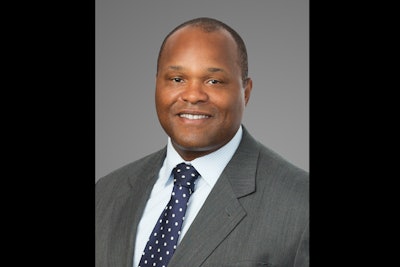
Horrific events like Sunday’s mass shooting in Las Vegas—which left nearly 60 attendees at the Route 91 Harvest country music festival dead and hundreds of others injured—are the stuff of an event professional's nightmares. While such incidents have become more frequent, the safety and security of event attendees sometimes is taken for granted.
Security expert Todd Madison has suggestions for changing that. The former Secret Service agent knows about guarding against danger; he served as special agent in charge of protecting former Secretary of State Hillary Clinton during her presidential run last year.
Now associate managing director of the private client services practice at K2 Intelligence, a security firm where former N.Y.P.D. Commissioner Ray Kelly is vice chairman, Madison spoke with BizBash about how planners can keep their events incident-free yet comfortable for guests.
Is what happened in Las Vegas an event security issue, or is it beyond that?
There always are risks in our everyday lives, but people shouldn’t take this as a reason not to do anything. They just have to prepare to communicate with each other.
Do planners have to include these worst-case scenarios when planning an event? Is that the new normal?
That should be continual in managing events. You always need an emergency action plan, not just in cases like this, but look at medical situations, or environmental issues like if someone smells gas or there’s a fire. As an event organizer you want to be able to tell people what to do and where to go. You can control the situation, but if you expect to just wave a wand and for things to be fine, you’re setting yourself up for failure.
What would you tell event organizers to look for—and to ask of—their venues, both for indoor and outdoor events?
Open the lines of communication prior to an event and engage with the event management team at the facility. Speak with the in-house staff about emergency plans and preparedness, which can be communicated back to the event planner’s people.
Ask questions about how to manage people entering the event. Also, create a check-in table for invited guests and have it away from the main entrance; distance is your friend. If you allow unknowns to get close to the event, you’re putting guests in a vulnerable situation. You want to be aware of other access points and be sure the venue can provide security. If not, seek out a security consulting company that’s well versed in issues that might arise, security protocols, concerns in the area, etc. They can detect nefarious activity, which gives you a road to success.
What are some fixes to problems that may arise which event planners can make before an event starts?
You need staff to walk up and down the line to get in, talking to people and making sure everyone is orderly. Then, that person needs a way to communicate, like a walkie-talkie, and if someone’s acting odd, the staff member or volunteer needs to know procedures for what to do next.
Also, connect with local and federal law enforcement officials so that they know about your event and if there is something to watch out for, like a controversial speaker or attendee, they are prepared. And if the police or others have information about a hate crime happening in the area, then they can plan for providing security to your event in a certain way.
But what's the balance between having visible security, like guards or metal detectors, and scaring guests or placing an undue burden on them?
Think of a dart board, starting with the outside: the training during the countdown to a meeting, when things are being delivered and everyone is involved, that’s the first part of the process and it’s a relaxed time to monitor what’s going on. Then while on site, there needs to be vigilance, but you don’t have to tackle someone if something is wrong. It’s a matter of seeing something and saying something to the command center, or the inner ring.
What would you advise event planners tell potential event attendees regarding security concerns?
Provide them with information and look for ways to make them comfortable. If you want to put security in place, make sure guests are fine with it. Put in layers of security that aren’t so noticeable and try to make the monitoring of activity as seamless as possible. You want to prepare guests so there are no surprises, but there’s no reason to scare them. Event and venue staff and law enforcement officers are the ones who’ll look out for the actual plan, where the exits are, etc. You want to take that concern away and have guests enjoy the event.



















